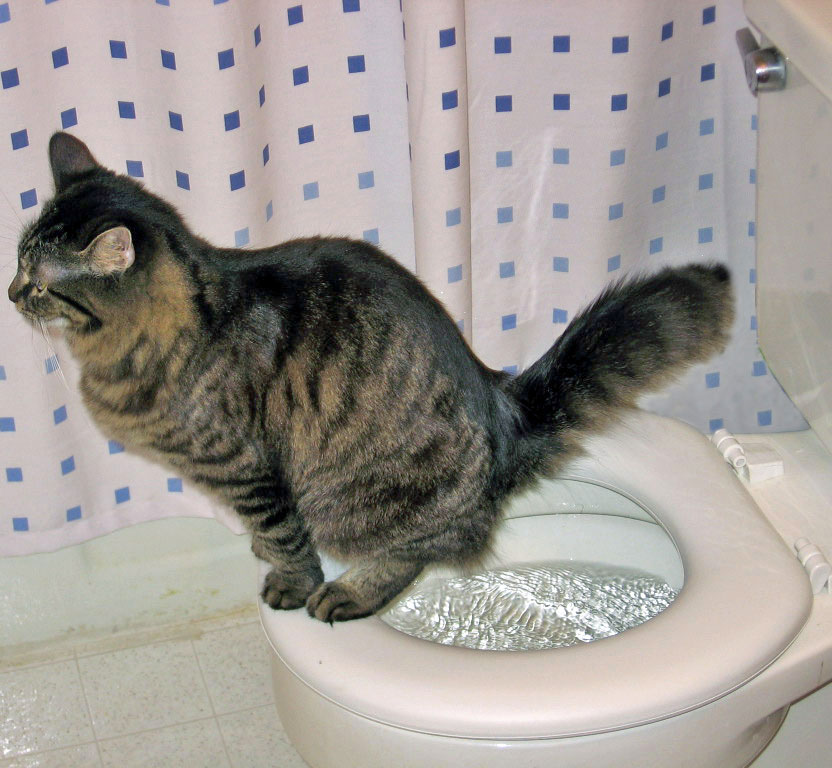Reasons Flushing Cat Poop Down Your Toilet May Cause Problems - Recommendations for Safe Disposal
Reasons Flushing Cat Poop Down Your Toilet May Cause Problems - Recommendations for Safe Disposal
Blog Article
How do you really feel on the subject of How to Dispose of Cat Poop and Litter Without Plastic Bags?

Intro
As pet cat proprietors, it's vital to bear in mind exactly how we deal with our feline good friends' waste. While it may seem practical to purge feline poop down the bathroom, this technique can have harmful effects for both the setting and human health.
Alternatives to Flushing
Luckily, there are much safer and extra liable methods to get rid of cat poop. Think about the following alternatives:
1. Scoop and Dispose in Trash
One of the most usual technique of dealing with feline poop is to scoop it right into an eco-friendly bag and throw it in the trash. Make sure to utilize a specialized trash scoop and deal with the waste without delay.
2. Use Biodegradable Litter
Choose eco-friendly feline clutter made from products such as corn or wheat. These litters are environmentally friendly and can be safely thrown away in the garbage.
3. Bury in the Yard
If you have a lawn, think about burying pet cat waste in a marked location far from vegetable gardens and water sources. Make certain to dig deep enough to avoid contamination of groundwater.
4. Set Up a Pet Waste Disposal System
Buy an animal garbage disposal system especially made for feline waste. These systems make use of enzymes to break down the waste, lowering smell and ecological impact.
Health and wellness Risks
In addition to environmental problems, flushing feline waste can also present wellness threats to people. Cat feces may consist of Toxoplasma gondii, a parasite that can cause toxoplasmosis-- a potentially severe illness, specifically for pregnant females and individuals with damaged immune systems.
Ecological Impact
Flushing feline poop presents dangerous pathogens and bloodsuckers right into the water system, posing a considerable threat to aquatic environments. These impurities can negatively impact marine life and concession water top quality.
Conclusion
Responsible animal possession prolongs past providing food and shelter-- it also involves proper waste management. By refraining from purging feline poop down the toilet and going with alternative disposal methods, we can decrease our environmental footprint and secure human wellness.
Why You Should Never Flush Cat Poop Down the Toilet
A rose by any other name might smell as sweet, but not all poop is created equal. Toilets, and our sewage systems, are designed for human excrement, not animal waste. It might seem like it couldn’t hurt to toss cat feces into the loo, but it’s not a good idea to flush cat poop in the toilet.
First and foremost, assuming your cat uses a litter box, any waste is going to have litter on it. And even the smallest amount of litter can wreak havoc on plumbing.
Over time, small amounts build up, filling up your septic system. Most litter sold today is clumping; it is made from a type of clay that hardens when it gets wet. Ever tried to scrape old clumps from the bottom of a litter box? You know just how cement-hard it can get!
Now imagine just a small clump of that stuck in your pipes. A simple de-clogger like Drano isn’t going to cut it. And that means it’s going to cost you big time to fix it.
Parasitic Contamination
Believe it or not, your healthy kitty may be harboring a nasty parasite. Only cats excrete Toxoplasma in their feces. Yet it rarely causes serious health issues in the cats that are infected. Most people will be fine too if infected. Only pregnant women and people with compromised immune systems are at risk. (If you’ve ever heard how women who are expecting are excused from litter cleaning duty, Toxoplasma is why.)
But other animals may have a problem if infected with the parasite. And human water treatment systems aren’t designed to handle it. As a result, the systems don’t remove the parasite before discharging wastewater into local waterways. Fish, shellfish, and other marine life — otters in particular — are susceptible to toxoplasma. If exposed, most will end up with brain damage and many will die.
Depending on the species of fish, they may end up on someone’s fish hook and, ultimately on someone’s dinner plate. If that someone has a chronic illness, they’re at risk.
Skip the Toilet Training
We know there are folks out there who like to toilet train their cats. And we give them props, it takes a lot of work. But thanks to the toxoplasma, it’s not a good idea.

I discovered that blog entry about Don’t flush cat feces down the toilet while scouting around the internet. Those who enjoyed our blog post kindly remember to share it. Thank-you for taking the time to read it.
Book 24/7 Report this page